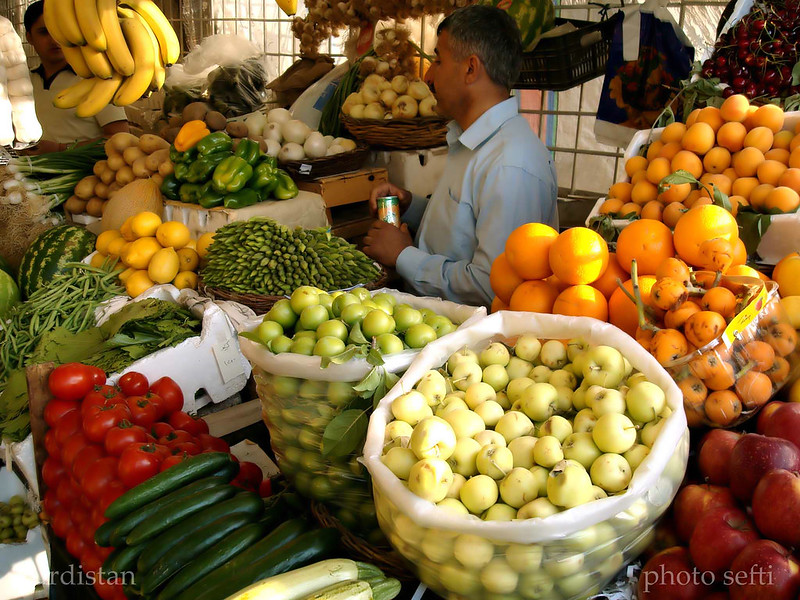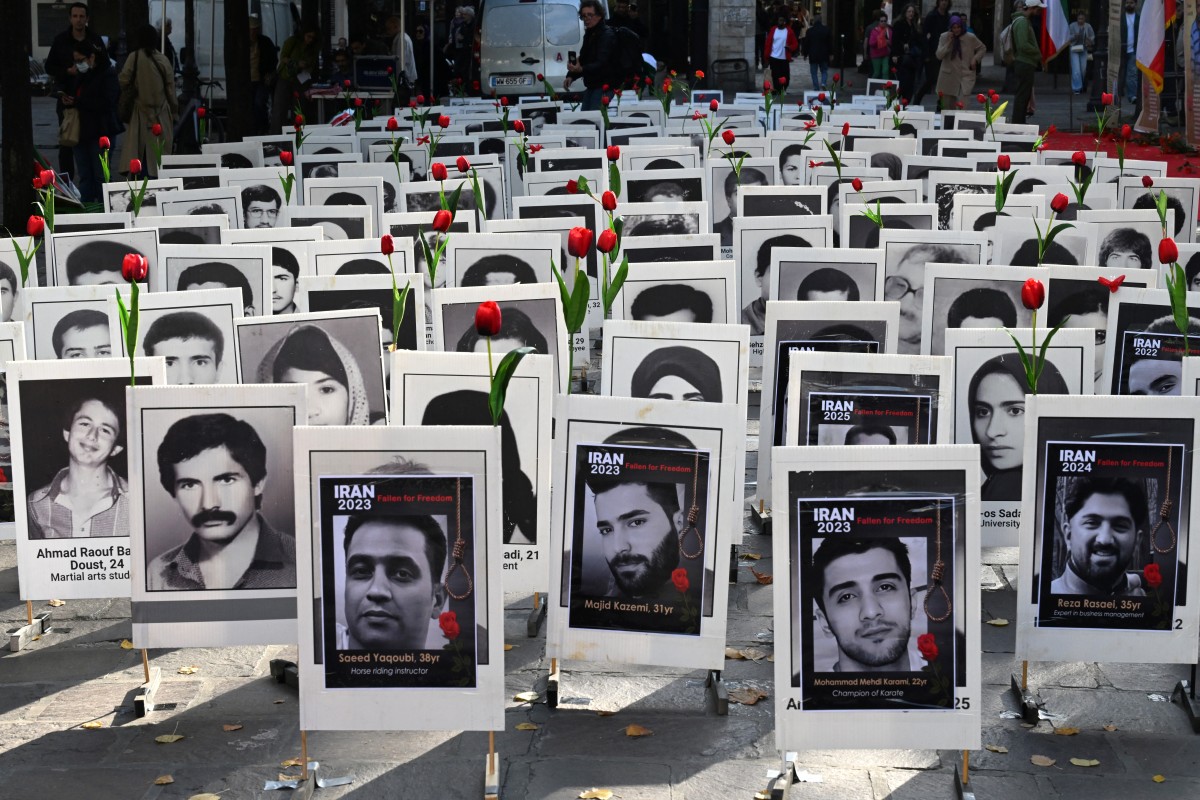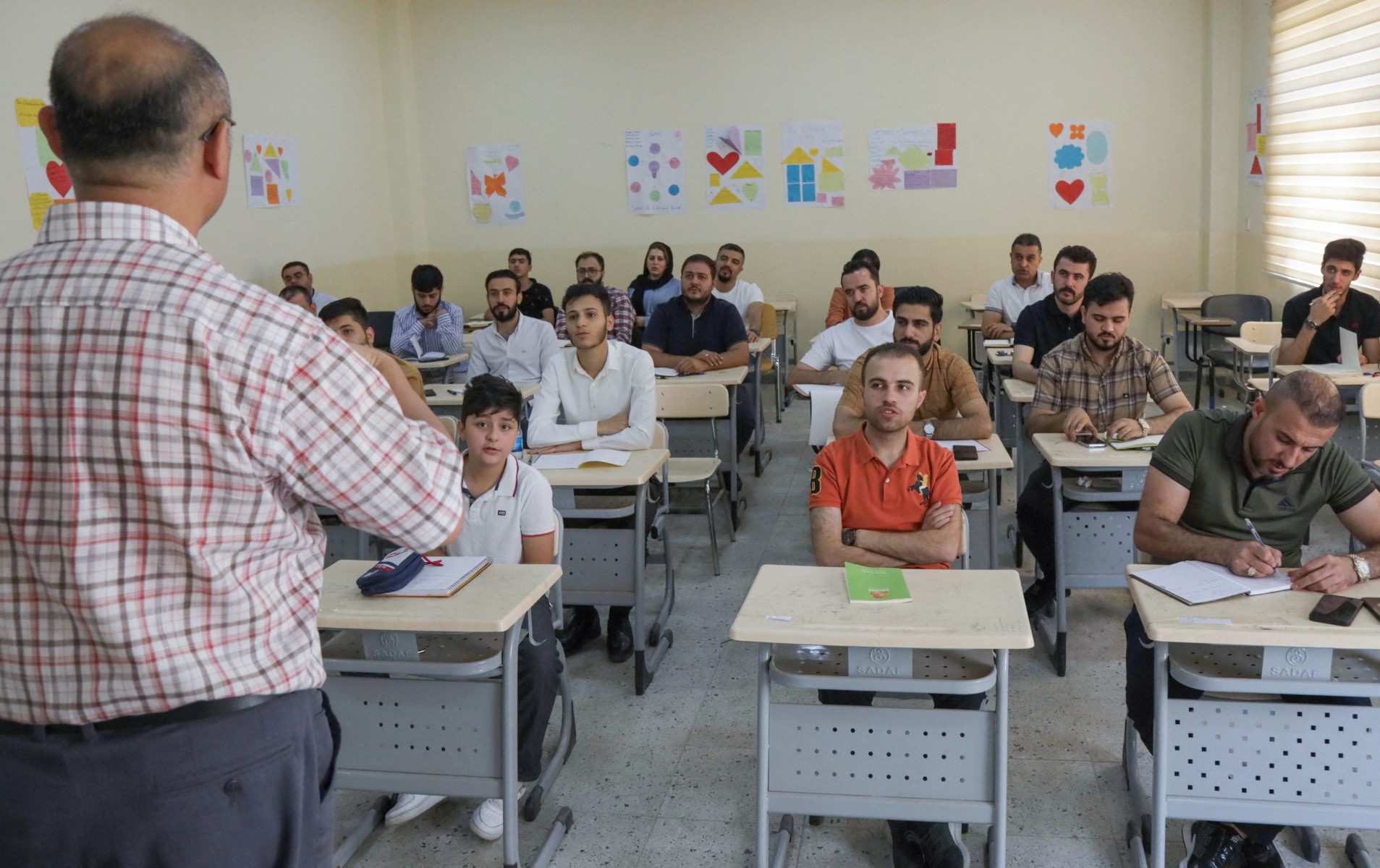The harm supply chain: food, agriculture and colonialism in Kurdistan

Photo: Kurdistan Photo / CC BY-NC-ND 2.0
Photo: Kurdistan Photo / CC BY-NC-ND 2.0
This was a speech given by Dr. Joost Jongerden during the Launch Event of The Amargi on 20th September 2025.
Introduction
Food is not the first thing that comes to mind when thinking about politics. Yet the political does not always present itself explicitly as political (Day 2022). This is certainly the case for food. While food is essential for the reproduction of biological life and an important cultural and economic artefact, various authors have shown it is political too. Single food products, such as sugar (Mintz 1985), palm oil (Csevár and Rugarli 2025) and soy (Hiraga 2025), have been shown to be inseparable from the histories of capitalism and colonialism. Their examples illustrate how food is entangled with broader systems of power, exploitation, and domination. Similarly, in the development of a food supply chain in Kurdistan, we see that food can both foster life and community, and foil it, serving as a vehicle for the deliberate destruction of political and socio-economic existence.
Harm distribution
Some of my colleagues have long studied the politics of food and food governance. Their research examines the food supply chain—the processes of production, processing, and distribution from farm to fork. It investigates struggles over control and power in food systems: where added value is created and who captures it, how authority is established, how resources are allocated, what values guide production and consumption, and how different actors and visions contend with each other (Roep and Wiskerke 2006, Duncan and Claeys 2018, Duncan, Claeys et al. 2021).
In this contribution, I would like to shift the focus towards another dimension of the politics of food: how states manage, justify, and normalize the infliction of harm on populations, and do this through the food supply chain which become instrumentalized as a harm supply chain. For this, I draw on the work of the contemporary philosopher Adi Ophir, who argues that modern state societies are organized around the production and management of damage, making it a systematic—rather than accidental—feature of political life (Ophir 2005). While Foucault taught us that modern state power operates through the production of populations, for example via a politics of reproduction and demographics (Foucault 2010), Ophir shows how the production of populations also involves the systematic allocation of harm to certain groups and places. In the context of occupation or colonialism, the distribution of harm can reaches its apex in a project of destruction (Azoulay and Ophir 2012). In Kurdistan, food and agriculture have been important vehicles for the production and distribution of harm, colonial harm. So, let’s look at this colonial harm supply chain more closely.
Colonialism as a project of destruction
Generally, colonialism is described as a spatial practice of dominance entailing the subjugation of one group or people by another. This domination is enforced by a political entity through military, economic, and cultural means (Sunca 2023: 72). Operating within this matrix of subjugation, various kinds and forms of colonialism can be distinguished, which historically have their roots in two basic forms: franchise colonialism and settler colonialism (Shoemaker 2015). In franchise colonialism, the colonial power is interested in the exploitation of the colony, and domination is organized around the extraction of resources and the exploitation of labor for processes of capital accumulation. In settler colonialism, the objective is to displace the Indigenous population, making a permanent home for the settlers in the colonized area.
Elements of franchise and settler colonialism can be found back in Kurdistan, yet it’s not the main feature of colonialism in Kurdistan. First, colonial projects in Kurdistan have derived their logic from its location within (and not outside) the colonial states (Turkey, Iran, Iraq, and Syria) that have occupied a divided Kurdistan (Beşikçi 1990, Beşikci 2014). This form of colonialism contradicted the ‘salt-water’ thesis, which defined colonialism as a relationship between a Western metropole and an overseas territory, thereby obscuring colonial projects that unfolded within state borders (Nelson 2009). This brings me to the second point: the submission to aggressive, nascent nationalisms aimed at erasing ethnocultural difference through dissolution into a hegemonic spatio-national identity (Türk and Jongerden 2024).
Food and harm
So, where does food enter this story? In short, the food supply chain functions as a colonial harm chain in Kurdistan, manifesting in three key ways (Türk and Jongerden 2024).
First, the modernization of food production, agriculture, functioned as a mechanism for expanding state power into rural areas. In for example both Turkey and Syria, the construction of dams, that aimed to transform small-scale dryland farming into large-scale irrigated agriculture, were conceived and deployed as instruments for establishing centralized administration (Scott 1998, Mitchell 2002, Harris 2012, Akıncı, Bilgen et al. 2020). Together, with the dams, bureaucratic institutions filled with state planners, experts, extension officers, credit suppliers and more entered the region. To paraphrase Tilly (Tilly 1975), who learned us that states make war, and wars make states, we could argue that states build dams, and dams build states.
Second, agricultural modernization was structured around the creation of economic dependencies. Kurdistan became a producer of primary food products, while the processing of those products took place largely outside the region. For instance, although Rojava was turned into the wheat basket of Syria, it remained dependent on cities such as Hama, Homs, Aleppo, and Damascus for flour, bulgur, pasta, and other processed foods. This pattern of unequal economic development—producing a dynamic of center and periphery—has been described by several authors as a process of “de-development.” (Roy 1995, Soleimani and Mohammadpour 2020: 742, Yadirgi 2020). The harm of this agricultural modernizations lies in the systematic dismantling of a people’s capacity to sustain themselves economically and socially, creating dependency and vulnerability.
Third, and importantly, agricultural modernization was designed to contribute to the destruction of Kurdish identity. In Turkey, the Southeastern Anatolia Project (GAP)—with dam-centered agricultural modernization at its core—was explicitly conceived as a tool to undermine Kurdish identity. GAP-employed social scientists argued that the introduction of modern, irrigation-based agriculture and market integration would usher in a new lifestyle. Tribal relations and extended families would, they claimed, lose their importance, while reliance on state institutions would grow. In this vision, “tribal Kurds” were expected to become “modern Turks,” effectively dissolving Kurdish identity (Jongerden 2010). In Syria, the stripping of Kurds’ citizenship and widespread dispossession were likewise intended to dismantle Kurdish political and socio-economic life. In parallel, the settlement of Arab families on state-run collective farms was designed to deepen the central state’s Arab nationalist imprint on the region (Türk and Jongerden 2024).
The Harm Supply Chain
Turkey, Syria and other colonial states have used the food supply chain as a vehicle of centralized bureaucratic domination, the de-development of the economy, and ultimately the destruction of political and socio-economic capacities through dispossession and assimilation. The supply chain that delivered agrarian products to our plates was also, and intentionally, a chain of harm—distributing political and socio-economic destruction aimed at the dissolution of Kurdistan and the erasure of Kurdish identity. When the Arab-nationalist colonial harm regime collapsed in Syria, the autonomous administration decolonized this supply chain through decentralization, diversification, and local added value processing. But that’s for another contribution.
References
Akıncı, Z. S., A. Bilgen, A. Casellas and J. Jongerden (2020). “Development through design: Knowledge, power, and absences in the making of southeastern Turkey.” Geoforum 114: 181-188.
Azoulay, A. and A. Ophir (2012). The One-State Condition: Occupation and Democracy in Israel/Palestine. Stanford, Stanford University Press.
Beşikci, İ. (2014). Cezaevinden Mektuplar. Istanbul, İsmail Beşikci Vakfı Yayınları.
Beşikçi, I. (1990). Devletlerarası Sömürge, Kürdistan; Bilim-Resmi Ideoloji, Devlet- Demokrasi, ve Kürt Sorunu. Paris, Institut Kurde de Paris.
Csevár, S. and Y. Rugarli (2025). “Greasing the Wheels of Colonialism: Palm Oil Industry in West Papua.” Global Studies Quarterly.
Day, J. W. (2022). The Layers of an Onion: Food and Nation in Turkey. The Routledge Handbook on Contemporary Turkey. J. Jongerden. London, Routledge: pp. 335-346.
Duncan, J. and P. Claeys (2018). “Politicizing food security governance through participation: opportunities and opposition.” Food Security 10(6): 1411-1424.
Duncan, J., P. Claeys, M. G. Rivera-Ferre, E. Oteros-Rozas, B. Van Dyck, C. Plank and A. A. Desmarais (2021). “Scholar-activists in an expanding European food sovereignty movement.” The Journal of Peasant Studies 48(4): 875-900.
Foucault, M. (2010). The Birth of Biopolitics: Lectures at the Collège de France, 1978–1979. New York, Picador.
Harris, L. M. (2012). “State as socionatural effect: Variable and emergent geographies of the state in southeastern Turkey.” Comparative Studies of South Asia, Africa and the Middle East 32(1): pp. 25-39.
Hiraga, M. (2025). A Business History of Soy: Japan’s Modernization and the Rise of Soy as a Global Commodity. London, Taylor & Francis
Jongerden, J. (2010). “Dams and Politics in Turkey: Utilizing Water, Developjng Conflict.” Middle East Policy XVII(1): 137-143.
Mintz, S. (1985). Sweetness and Power: The Place of Sugar in Modern History. New York, Viking.
Mitchell, T. (2002). Rule of Experts, Egypt, Techno-Politics, Modernity. Berkeley, University of California Press.
Nelson, R. L. (2009). Germans, Poland, and Colonial Expansion to the East 1850 Through the Present. Dordrecht, Springer.
Ophir, A. (2005). The Order of Evils: Toward an Ontology of Morals. New York, Zone Books.
Roep, D. and J. S. C. Wiskerke (2006). Nourishing networks : Fourteen lessons about creating sustainable food supply chains, Reeds Business Information.
Roy, S. (1995). The Gaza Strip: The Political Economy of De-development. Washington DC, Institute for Palestinian Studies.
Scott, J. C. (1998). Seeing Like a State: How certain schemes to improve the human condition have failed New Haven, Yale University Press.
Shoemaker, N. (2015). “A Typology of Colonialism.” Perspectives on History October 2015: https://www.historians.org/research-and-publications/perspectives-on-history/october-2015/a-typology-of-colonialism.
Soleimani, K. and A. Mohammadpour (2020). “Life and labor on the internal colonial edge: Political economy of kolberi in Rojhelat.” The British Journal of Sociology 71(4): pp. 741-760.
Sunca, J. Y. (2023). “Colonial continuities in the Kurdish liberation.” The Commentaries 3(1): pp. 71-89.
Tilly, C. (1975). Reflections on the History of European State Making. Princeton, Princeton University Press.
Türk, N. and J. Jongerden (2024). “Decolonisation agriculture: challenging colonisation through the reconstruction of agriculture in Western Kurdistan (Rojava).” Third World Quarterly 45(11): 1738-1757.
Yadirgi, V. (2020). “Turkey’s Kurdish Question in the Era of Neoliberalism.” Journal of Balkan and Near Eastern Studies 22(6): 793-809.
Joost Jongerden
Joost Jongerden (PhD) is an Associate Professor of Rural Sociology at Wageningen University, the Netherlands. His research focuses on forced migration, rural development, and political and violent conflict in the Kurdistan region, with particular attention to dispossession, displacement, and how people actively pursue alternative futures—an approach he describes as Do-it-Yourself Development.



